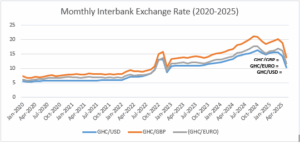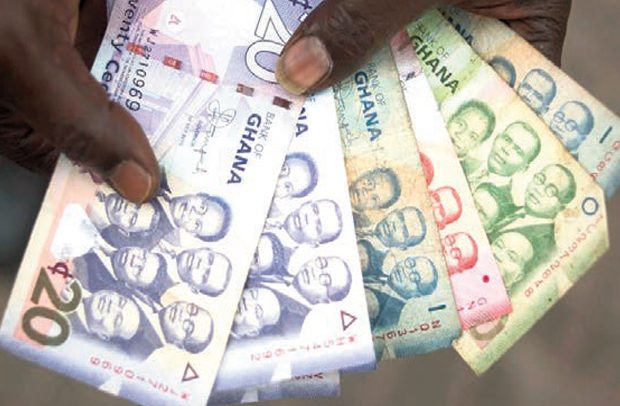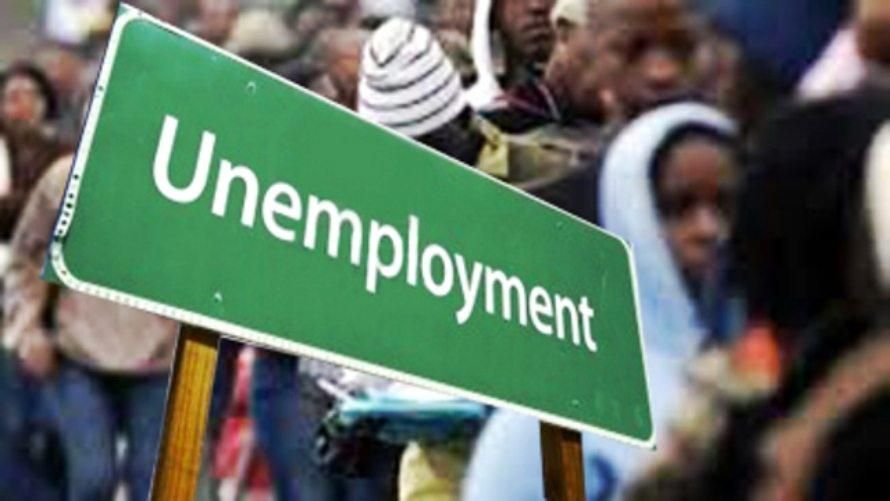
By Ahmed (Watara) TAHIRU & Eric TETTEH
In this article, we’ll walk you through step by step why currencies have different values. But before diving into that, let’s take a quick look at the history of money. For a long time, money was directly connected to valuable metals like gold.
This system was known as the gold standard. Under it, a country’s currency was backed by a fixed amount of gold. For example, the U.S. dollar was once pegged to gold.
This helped keep exchange rates stable because governments couldn’t print more money unless they had more gold. It acted as a check on excessive money printing.
However, as economies developed and global trade expanded, the gold standard became harder to maintain. Especially during wars or crises, countries needed more money but lacked the gold to support it. By the 1970s, most nations had moved away from gold and adopted a fiat money system.
Fiat money holds value because governments declare it legal tender and people trust it. It’s not tied to a physical commodity like gold. Since it has no intrinsic value, it’s worth it depending on how much people want to use it. When demand is high, the value rises; when confidence drops, its value falls.
That’s why the money of economically strong countries like the U.S. dollar tends to be more valuable, many people want to use it. On the other hand, currencies in weaker economies, like Ghana during inflationary periods, often lose value because even locals may prefer holding foreign currencies. It all comes down to supply and demand.
Key factors that influence currency values
Inflation
Inflation means your money loses purchasing power. This usually happens when too much money chases too few goods and services. Ghana’s inflation rate surged to around 31percent in 2022 and nearly 38percent in 2023, weakening the cedi.
Why? Because people don’t want to hold onto a currency that keeps losing value. For example, GH¢10 might have bought you Gob3 with plantain and egg in 2022, but by 2024, it may only get you plain Gob3. That’s inflation in action.
High inflation often stems from rising debt, overreliance on imports, reduced investor confidence, or external shocks. When prices rise sharply and more cedis are needed to buy the same goods, the currency’s value falls—especially compared to stable currencies like the U.S. dollar.
Interest rates
Interest rates represent the cost of borrowing money. In Ghana, the Bank of Ghana controls these rates. When rates are high, investors earn better returns, making Ghana more attractive. But to invest here, foreigners must convert their money into cedis—this raises demand for the cedi and strengthens it.
For instance, if Ghana offers a bond with 20percent interest while South Africa offers 10percent, investors may choose Ghana. But if Ghana’s rates fall, those same investors may pull their money out, lowering demand for the cedi.
However, high rates also make loans more expensive for businesses and individuals. So, while higher rates may attract investors and strengthen the cedi, they also slow economic activity.
Exports and Imports
Trade is another big factor. When a country exports, foreign buyers must convert their currency into the exporter’s money, increasing demand and strengthening it. For example, when Japan exports cars to Ghana, Ghanaian importers need Yen, increasing demand for the Yen. In Ghana’s case, we import more than we export—fuel, machinery, rice, even poultry.
To pay for these, Ghana must convert cedis into foreign currencies, especially U.S. dollars. This constant demand for dollars puts pressure on the cedi. Unless we increase exports and reduce import dependency, the cedi will continue to struggle. That said, the cedi has shown some resilience, appreciating slightly against the dollar since May 2025.
Economic growth and stability
A country with strong growth and stable governance usually has a stronger currency. More jobs, business activity, and rising GDP make both locals and foreigners feel confident in using and investing in that country’s currency.
For Ghana, when the economy is doing well, foreign investors may set up factories, buy shares, or lend to the government—all requiring cedis. This demand strengthens the currency. But economic mismanagement, rising debt, or political uncertainty scares investors away. When they pull out, they convert cedis to foreign currency, weakening the cedi.
Market sentiment and speculation
Sometimes, a currency’s value changes not because of actual economic shifts, but because of how people feel. This is called market sentiment. For instance, if investors believe Ghana is securing an IMF deal or releasing strong economic data, they may gain confidence and buy cedis, strengthening it.
On the flip side, if rumors spread about political unrest, debt concerns, or unclear policies, people might rush to sell cedis—even if nothing major has changed yet. That emotional reaction alone can drive down the currency’s value.

Conclusion
The value of a currency like the Ghanaian cedi is shaped by a complex interplay of economic forces, from inflation, interest rates, trade balances, and investor confidence to political stability and global perception.
These factors determine how many people, both locally and internationally, are willing to trust and use a currency. While Ghana has faced significant challenges in recent years, including high inflation and currency depreciation, there are signs of resilience and recovery.
By improving economic management, boosting exports, maintaining stable governance, and building investor confidence, the cedi can become stronger over time. Understanding why currencies differ in value helps us make sense of the economic headlines, personal financial decisions, and the direction our country is heading. After all, the strength of a currency is not just about money, but it reflects the overall health, discipline, and potential of a nation.
>>>Ahmed Tahiru is a dedicated financial literacy advocate and aspiring entrepreneur with a mission to empower individuals through knowledge. With a deep passion for helping others unlock their financial potential, he believes that financial education is key to personal and community growth. Outside of his advocacy work, Ahmed is an avid reader and writer, constantly learning and sharing insights. Guided by the philosophy, “Your attitude, not your aptitude will determine your altitude,” he focuses on fostering a positive mindset for success in all endeavours. He can be reached via 233 543 460 166 and or [email protected] and or https://www.linkedin.com/in/ahmed-tahiru
>>>Eric Tetteh is a finance professional with experience in investment analysis, fund management, and financial research. He is the founder of Finsage Analytics, a platform dedicated to training aspiring finance professionals in financial performance analysis. Eric works in asset management space, conducting market research and equity analysis to support investment decisions. He is also passionate about career development and founded CareerStreet, a mentorship and professional development initiative that bridges the gap between academia and industry. Eric holds a strong interest in corporate finance, investment banking, and economic research. He can be reached via [email protected] and or 233 554 679 394
The post Why currencies have different values: Understanding the cedi (1) appeared first on The Business & Financial Times.
Read Full Story












Facebook
Twitter
Pinterest
Instagram
Google+
YouTube
LinkedIn
RSS